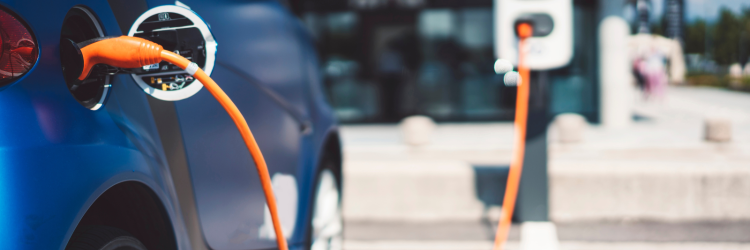Now that we seem to have reached a tipping point and will see far faster adoption of electric vehicles, a key question arises for insurers: Will they be safer or riskier?
In theory, they'll be safer, if only because the massive battery power will allow for a profusion of sensors and related safety devices. But we all know how theories can play out in practice. So, Cambridge Mobile Telematics took a hard look at performance to date and found that the answer is... a definite maybe.
The factors involved are complex, and the stakes are high, so it's worth taking a look at the countervailing forces they've identified and at their analysis.
On the one hand, the CMT report found that the greater acceleration possible with electric motors is leading to much higher risks from fast acceleration and from cornering for electric vehicles (EVs). Tesla drivers, for instance, were found to have acceleration risks that were 3 1/2 to four times higher than drivers of vehicles with internal combustion engines (ICE). Tesla drivers had 76% higher risks from cornering.
Tesla drivers also speed 7% more than ICE vehicle drivers -- though hybrids speed 18% less, and compact EVs speed 24% less.
Those high-risk behaviors don't, in fact, translate into higher accident rates for Tesla drivers -- but do for those seeking extreme performance. People who own both a Tesla and an ICE vehicle were actually almost 50% less likely to crash their Tesla, on a per-mile basis. Drivers of Porsche EVs, though....
The report says: "Porsche drivers are 129% more likely to accelerate, 40% more likely to hard brake and 15% more likely to speed in their Porsche. Porsche drivers are also 55% more likely to crash while driving their Porsche," than while driving their ICE vehicle.
The issues get more confusing when you start looking at variables that could change considerably over time, especially as the performance and range of batteries improve. At the moment, "the average trip for a compact EV is 10% shorter in time and 26% shorter in distance than ICE vehicles," the report says. The shortening of trips is even more pronounced in cold weather, when EVs lose 10% to 20% of their range. But battery technology is improving rapidly.
Gasoline prices are another wild card. With the surge over the past two years, the percentage of trips taken in a Tesla by those with both a Tesla and an ICE vehicle has risen from 63% of the total in January 2021 to 70% now. But the surge in prices has been subsiding -- and nobody can know where they go from here, unless you somehow have figured out what happens with global supply chains and with the Russian invasion of Ukraine.
As driver behavior, safety features, battery performance, gasoline prices and other factors sort themselves out, EVs may well turn out to be less likely to crash than ICE vehicles -- or not.
In other words, stay tuned.
Cheers,
Paul
P.S. If you want some detail on why I believe we're reaching a tipping point in terms of EV purchases, here is what I wrote on the topic in February. The clean air incentives in the Inflation Reduction Act that the Senate passed over the weekend should speed the move toward EVs.


